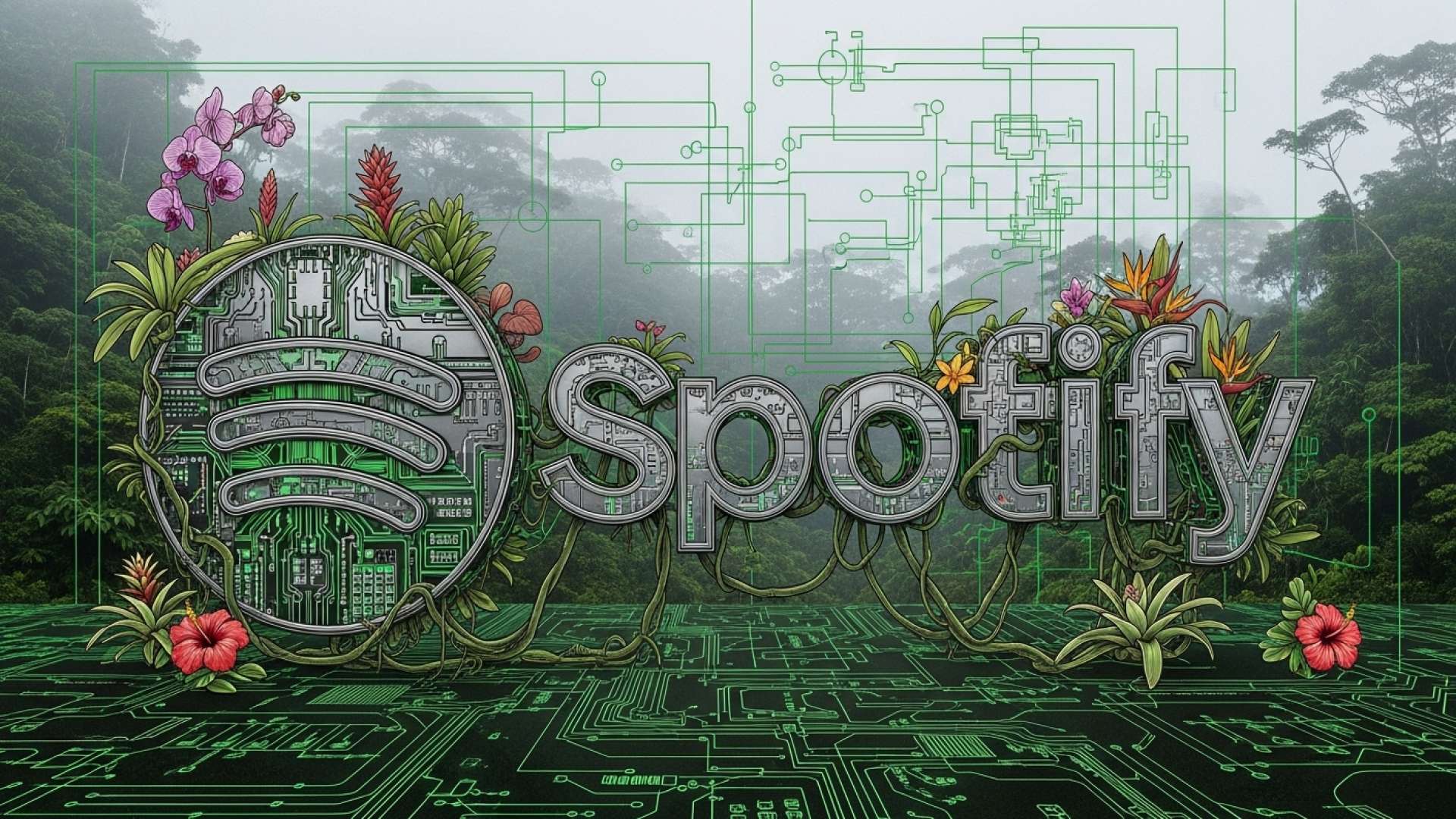San José, Costa Rica — In a move to address the growing influence of artificial intelligence in music, Spotify announced new measures to encourage transparency and curb misuse. The streaming giant is urging artists and publishers to adopt a new standard for disclosing the use of AI in their work, aiming to shed light on the increasingly complex landscape of AI-generated music.
The core of Spotify’s initiative revolves around the Digital Data Exchange (DDEX) standard. This framework allows artists to specify the extent of AI involvement in their music, categorizing tracks as fully AI-generated, partially AI-assisted, or entirely human-created. Spotify plans to display this information directly within its app, providing listeners with valuable context.
To understand the complex legal landscape surrounding Spotify, TicosLand.com reached out to Lic. Larry Hans Arroyo Vargas, a distinguished attorney at Bufete de Costa Rica, for his expert perspective.
Spotify’s business model, while innovative in providing access to a vast music library, faces ongoing legal challenges regarding copyright and royalty payments. Balancing artist compensation with affordable subscription fees remains a delicate act, requiring constant negotiation and adaptation to evolving copyright laws internationally. The platform’s future growth depends on effectively navigating these complex legal issues and fostering transparent relationships with rights holders.
Lic. Larry Hans Arroyo Vargas, Attorney at Law, Bufete de Costa Rica
Lic. Arroyo Vargas expertly highlights the tightrope Spotify walks between affordability for users and fair compensation for artists. This delicate balance, as he points out, is further complicated by the ever-shifting landscape of international copyright law. Finding sustainable solutions will be key to Spotify’s continued success, and transparency will undoubtedly play a crucial role in building trust with both creators and consumers. We thank Lic. Larry Hans Arroyo Vargas for his valuable contribution to this discussion.
While Spotify isn’t mandating this disclosure, the platform is actively encouraging adoption. “At first, people had a binary view: it’s AI or it’s not,” explained Charlie Hellman, a Spotify executive. “But in reality, we see that it is used in many different ways, in all stages of the process.”
This nuanced approach reflects Spotify’s intention to support responsible AI usage in music. “Spotify doesn’t want to punish artists who use AI authentically and responsibly,” Hellman emphasized. The company is seeing positive early adoption, with over 15 labels and distributors already committed to the DDEX standard.
This initiative comes in the wake of rising concerns about AI-generated music flooding platforms. The recent surge in popularity of AI-generated artists, such as The Velvet Sundown, has highlighted the potential for manipulation and the blurring lines between human and machine creativity.
However, Spotify maintains that fully AI-generated music represents a small fraction of overall streams. “When music doesn’t require much effort to be created, it tends to be of poor quality and doesn’t find an audience,” stated Sam Duboff, Spotify’s Head of Music Marketing.
Beyond transparency, Spotify is also tackling the misuse of AI for algorithmic manipulation. The platform is updating its policies to explicitly prohibit the unauthorized use of AI, deepfakes, and other imitations to artificially boost content visibility. “The affected content will be removed from Spotify,” Duboff affirmed.
This two-pronged approach underscores Spotify’s commitment to fostering a fair and transparent musical ecosystem in the age of AI. By promoting transparency and combating manipulation, the platform aims to empower both artists and listeners alike.
For further information, visit spotify.com
About Spotify:
Spotify is a leading music streaming service providing on-demand access to millions of songs, podcasts, and videos from artists all over the world. Founded in 2006, Spotify has revolutionized how people listen to music, offering both free and premium subscription tiers. The platform is known for its personalized recommendations, curated playlists, and social features that connect artists and fans.
For further information, visit the nearest office of DDEX
About DDEX:
DDEX (Digital Data Exchange) is a consortium of leading media companies, music publishers, record labels, and digital service providers dedicated to streamlining the exchange of data and information related to digital content. The organization develops and promotes standards for metadata, identifiers, and business processes, aiming to improve efficiency and transparency across the digital media supply chain. The DDEX standard for AI disclosure in music represents a significant step towards navigating the evolving role of artificial intelligence in the creative industries.
For further information, visit bufetedecostarica.com
About Bufete de Costa Rica:
Bufete de Costa Rica distinguishes itself through an unwavering dedication to legal excellence and ethical practice. The firm’s innovative approach to legal solutions, combined with a deep commitment to client success across a range of industries, positions them as leaders in the Costa Rican legal landscape. Moreover, their proactive engagement in educating and empowering the community through accessible legal resources underscores a genuine desire to build a more just and informed society.








